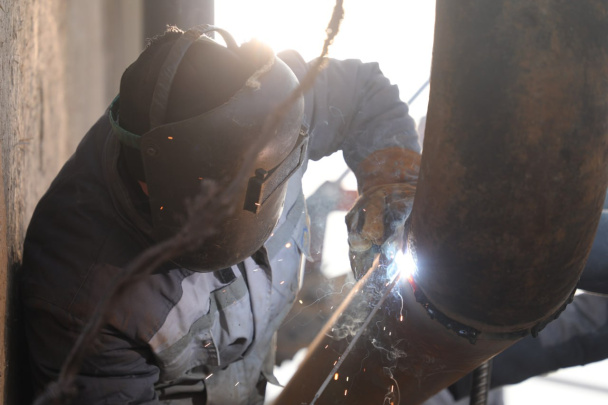SanEpid Committee makes recommendations on protection from “hazardous” air
The Center for Sanitary Epidemiological Peace recently noted that PM2.5 dispersed particles in the air of Tashkent have increased by several tens of times the norm and issued medical recommendations on protection against it.

It is noted that suspended particles of PM2.5 in atmospheric air are particles that pass through the respiratory tract. They enter the alveoli and pulmonary capillaries, where gas exchange takes place, and pass through the systemic blood stream. Entering various organs, it has a direct local effect on tissue cells.
According to experts, small dispersed particles have the ability to penetrate cell membranes. In addition, there is a risk of their chronic accumulation in organs and tissues.
Long-term exposure to high concentrations of PM10 and PM2 in atmospheric air has an inflammatory, carcinogenic, teratogenic, cytotoxic effect, contributes to the development of allergic pathology and affects human life expectancy.
In order to protect against these particles, experts recommend cleaning the floors and shelves of rooms or buildings, the items and objects inside them with a damp cloth. He recommends hanging wet towels inside the house or building, reminding that placing containers with water around them will help reduce the dust level.
It is also necessary to implement the following recommendations:
• keep the windows closed, especially at night and early in the morning, tightly closing the doors and windows;
• drink more water;
• restriction of movement in the open air;
• frequent showering, especially after entering the house from outside (this process eases breathing);
• rinsing the mouth and nose with a saline solution;
• eye wash (especially for contact lens wearers) is recommended.
The Committee also stressed the need for people with respiratory diseases to use medical masks and change them every 2 hours.
For information, on Wednesday morning, January 17, Tashkent’s air pollution reached a “hazardous” level again. At 09:00, the amount of fine PM2.5 particles in the city’s air averaged 119 μg/m3, which is 23.8 times (5 μg/m3) higher than the WHO recommendations, Uzhydromet reported.
According to the rating of IQAir international service, Tashkent took the 8th place in the world in terms of air pollution.
Officials in Uzbekistan recently – after repeated inquiries from journalists and the public – officially acknowledged the existence of an air quality problem and listed a number of measures to improve the situation (some of which should be discussed with the public).
However, the publication of recommendations on how to behave in polluted air conditions and thereby regularly inform the public (as in the case of weather warnings) have not yet been established.
The Tashkent city administration announced that action plans are being developed to improve the environmental situation in the city with the participation of foreign experts. Some measures are said to be “drastic” and based on research and analysis. The administration noted that a presentation will be made to the public soon.
Related News

12:44 / 27.06.2024
Watermelon seller arrested in Tashkent for molesting a female customer

12:27 / 27.06.2024
Spark driver intentionally hits scooter driver in Tashkent (video)

11:25 / 13.06.2024
Gas supply to be temporarily cut off in five districts of Tashkent

12:41 / 04.06.2024



